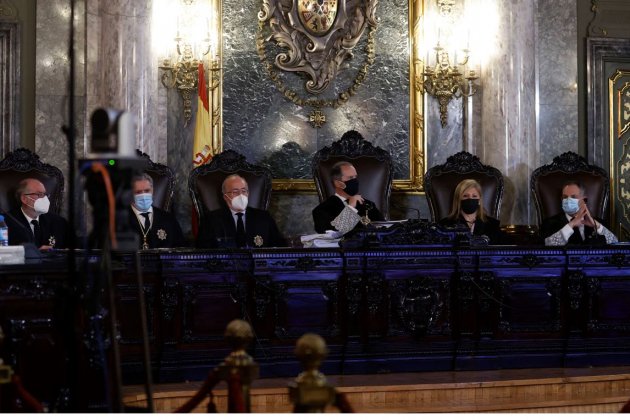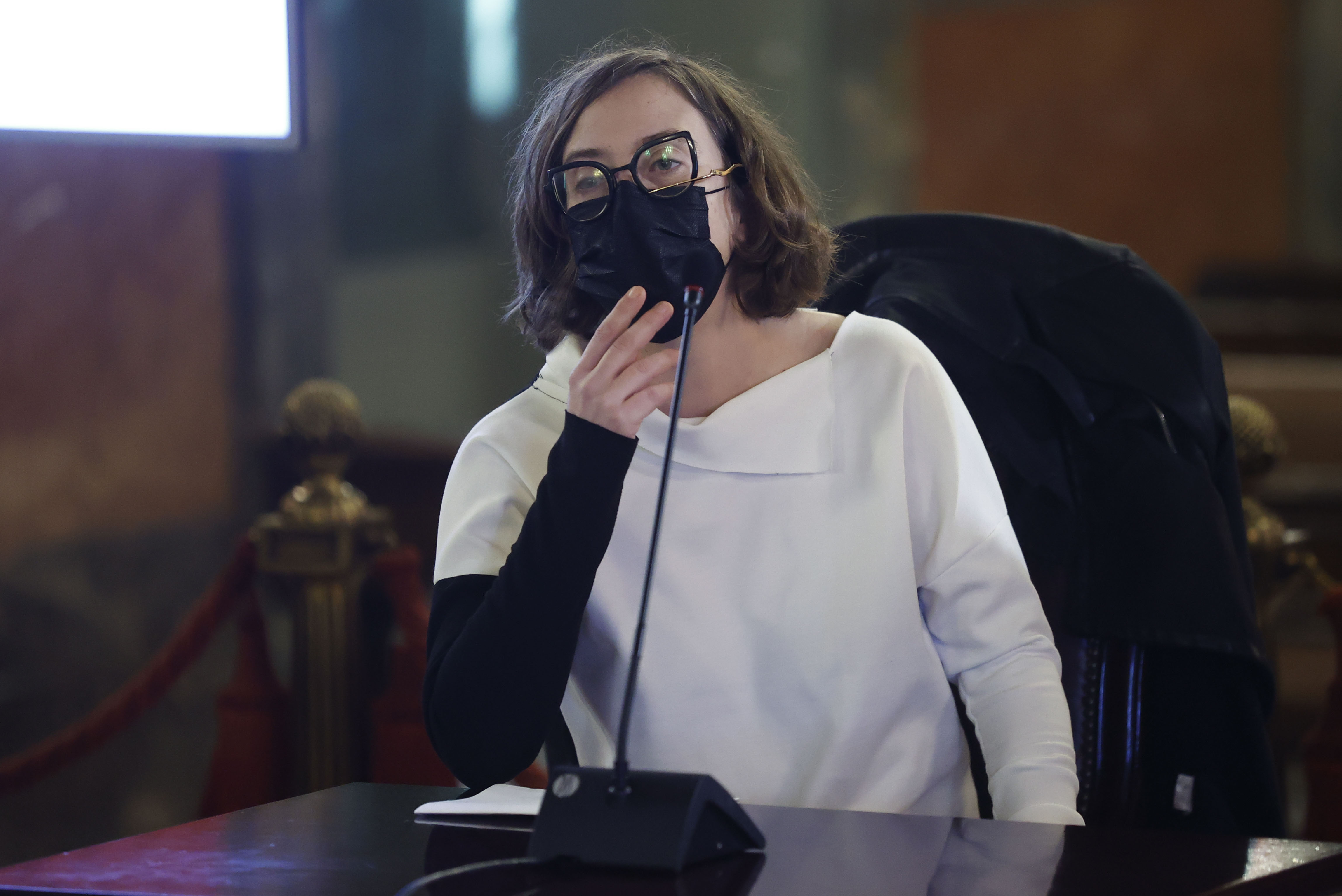In a judicial surprise, Spain's Supreme Court has accepted the arguments of Eulàlia Reguant, MP for the pro-independence CUP party, and has suspended today's trial against her for disobedience, arising from her refusal to answer questions from the Vox party when she was testifying in the trial of the Catalan independence leaders, on February 27th, 2019. The court stated that since she became an MP in the Catalan Parliament in March 2021, part of the court proceedings against her which was handled through a lower-level court in Madrid should have come through the Supreme Court. Thus, this part of the case will have to be repeated by a Supreme Court investigating judge and the public prosecutors will have to re-file an indictment. At today's hearing, Reguant, with a translator at her side, as she had announced that she wanted to testify in Catalan, listened to the arguments of her lawyer, the prosecutor and, in the end, the Supreme Court judges, who retired to deliberate over their decision.
The presiding Supreme Court judge Vicente Magro announces the suspension of Eulàlia Reguant's trial
Today, it also became known that the public prosecutors had lodged a letter of indictment last April amending the sentence they demanded from the CUP deputy for an offence of disobedience, reducing it from six to four months in prison as well as a ban on holding public office. If, in the end, the court convicts her, she is not in danger of going to prison, as the sentence demanded is less than two years and as she has no criminal record, it will automatically be commuted to a fine. The ban on holding office, however, despite having been reduced, would be executed, in line with what happened recently to her CUP party colleague Pau Juvillà, the Podemos member of Congress, Alberto Rodríguez, and also Catalan president Quim Torra, who was present to support her fellow pro-independence politician. This morning, before entering the court, the far-left deputy was accompanied by members of her party and also received the support of members of the other major Catalan pro-independence parties, ERC and Junts, as well as the civil groups ANC and Omnium.
Arguments
In preliminary questions, the lawyer for the MP, Daniel Amelang, asserted that his client's rights to freedom of expression and ideology, as well as political participation, had been violated, and demanded that the investigative part of the case be re-heard in the Supreme Court, as Eulàlia Reguant became a member of parliament in March 2021 and at that point the lower-level Madrid investigating court should have given up the proceedings. For his part, the prosecutor Carmelo Quintana disputed that any of Reguant's rights had been violated, and compared his case with that of MP Joan Josep Nuet, for whom the investigative part of the case was separated from that of his former fellow MPs on the Bureau, so that the first part of the case for disobedience over the 2017 Catalan referendum was heard in the Catalan High Court; and then he was tried in the Supreme Court, having become an MP in the Spanish Congress subsequently. The prosecutor also stated that the freedoms demanded by Reguant were adequate, but that "freedoms have limitations" and in her case, he said, that "she showed a radical refusal to answer Vox without even knowing the questions." The prosecutor placed Reguant's disobedience at the level of that of president Torra, his conviction for disobedience was validated by the Supreme Court as he failed to remove a banner expressing support for political prisoners. The seven judges of the court withdrew to deliberate on these preliminary issues, and in the end, to everyone's surprise, they accepted Reguant's request. That is, her trial has been suspended until the end of the investigative part is repeated.
A new court
The court that was to judge the far-left MP today has a different composition to that which tried and convicted the pro-independence leaders in 2019. In that trial, the president of the court, judge Manuel Marchena, had no inclination at all to bend to Reguant's request, when she was called as a witness by the then-president of Òmnium. It was useless for Òmnium's lawyers to ask Marchena to himself put the questions from Vox's private prosecution to the witness, something that was attempted with the then-CUP politician Antonio Baños, who was investigated in the same Madrid court as Reguant, but has not yet been tried. In fact, the court has already required Reguant, who was then a councillor on the Barcelona City Council, as well as Baños, to pay a fine of 2,500 euros, a fact which her defence asserts means she has already been punished for this alleged disobedience, and to punish her a second time for the same offence would be illegal.
The chamber that was to judge the Catalan deputy was made up of judges Miguel Colmenero, Vicente Magro (president), Susana Polo, Eduardo de Porres, Ángel Luis Hurtado, Leopoldo Puente and Javier Hernández. The last named, who previously served in the Tarragona Audience and the Catalan High Court appeals chamber, is one of the few progressive judges in Spain's high court.

Six of the seven Supreme Court judge, in the trial of Reguant today (Efe) and, below, the court's decision.

